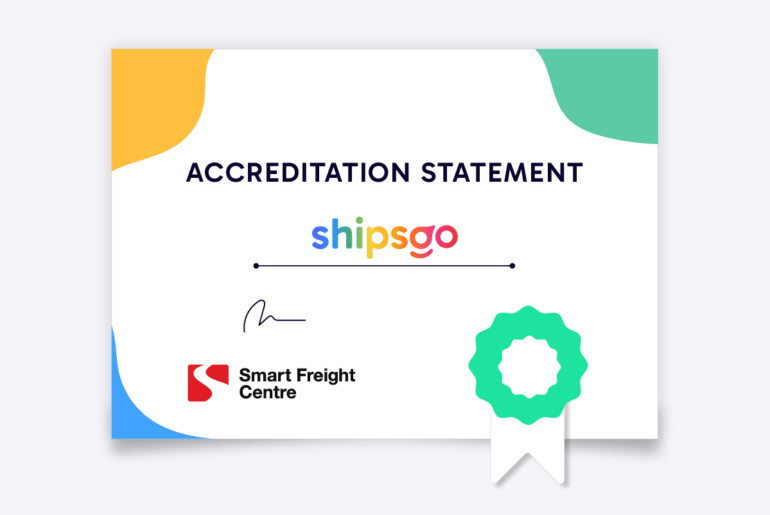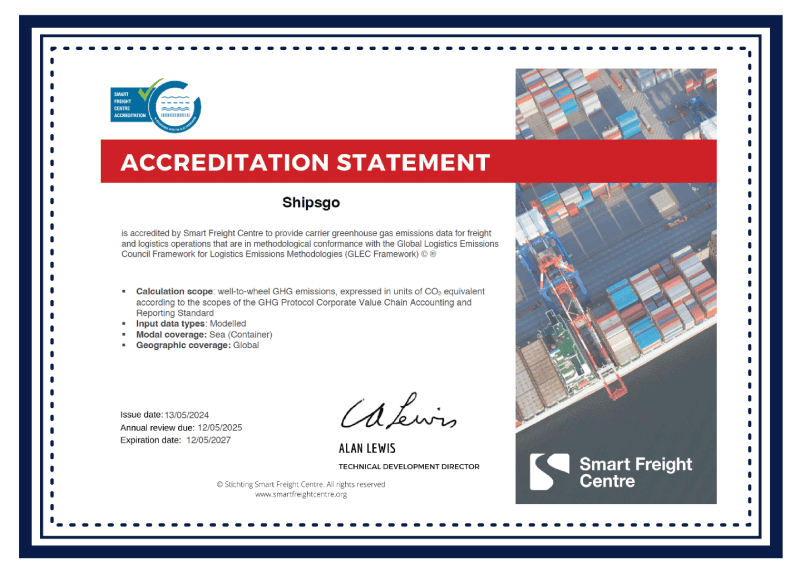In 2024, carbon emissions and sustainability are very significant for our world and our industry. Many sectors and business lines are aware of the importance of sustainability criteria and act accordingly. We will see many sectors shaped around the GLEC Framework. Of these sectors, the logistics and container transportation sector is of course at the top of the list.
A lot of carbon is emitted during the transportation of shipments by land, waiting at ports, and loading them with cranes on ships. According to Smart Freight Center’s research in recent years, the transportation sector represents 23% of global greenhouse gas (GHG) emissions. Freight Transportation accounts for 36% of this. These data may increase to 50%-60% by 2050 in line with expectations.
When we looked at all these conclusions, we thought that we had to do something as Shipsgo. As a result of long researches and studies, we created two different services.
Shipsgo and SFC GLEC Framework Accreditation
It is very important to track CO2 emissions and take action accordingly. At this point, let’s talk about the details of the Port Area Carbon Emission Tracker service:
Shipsgo Carbon Emission Tracker is a digital platform that tracks real-time carbon emissions of every port area in the world. The platform also allows users to compare historical changes in carbon emissions and discover emission sources.
We have been accredited by Smart Freight Center for our service “The Port Area Carbon Emission Tracker”, which is significant because Smart Freight Centre (SFC) is a global non-profit organization dedicated to an efficient, zero-emission transport sector. Furthermore, the process is aligned with the Global Logistics Emissions Council Framework for Logistics Emissions Methodologies (GLEC Framework).
What is Carbon Offset?
ShipsGo is committed to supporting environmental sustainability and is concerned about climate change! Carbon offsets neutralize the unavoidable greenhouse gas (GHG) emissions during shipping operations. It is seen as a quick, simple and practical way to motivate action to reduce the impacts of climate change.
By financing the environmentally sensitive projects proposed, container shipping companies and beneficial cargo owners will be able to neutralize their share of the total emissions for a given shipment.





